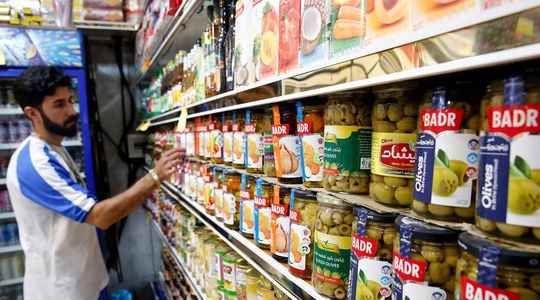Some have called it “the revolt of the Macaroni”: even if they are not at the top of Iranian gastronomy, Italian pasta is one of the products whose price has tripled in recent days in Tehran. In this month of May, Iranians must also pay two to five times more for their bottle of oil, their eggs or their chicken compared to April.
This staggering rise in prices, caused by soaring cereal prices and the removal of certain subsidies, sparked brawls in stores and spontaneous demonstrations all over the country. “Bread, chicken and oil are very symbolic in Iran, insists Farid Vahid, director of the Observatory of North Africa and the Middle East of the Jean-Jaurès Foundation. This inflation particularly hurts the most disadvantaged people, who were already earning very little or nothing. In Iran, many workers have not been paid for several months and were living on state aid. This situation can create a serious crisis for the regime, a point a break.”
After four years of international sanctions and two years of pandemic, the Iranian economy seems to be at the end of its course, with general inflation reaching 40%. In an emergency, the ultra-conservative president Ebrahim Raïssi announced aid of 14 dollars per month for each family, in order to relieve the most deprived. But this derisory sum will not be paid for several weeks. “Iran is heading towards an explosive situation, untenable for its inhabitants, believes Farid Vahid. With international sanctions, the poor have become poorer, the middle class has disappeared and the rich, linked to the regime, take advantage of the system to s ‘enrich.” More than one in two Iranians now lives below the poverty line.
Two French tourists arrested, Iran in full security drift
This economic crisis is accompanied by a resumption in security control of Iran. A year after coming to power, Raisi, reputed to be a “hardliner” for the Islamic Republic, is purging the state apparatus of “moderates” and trying to bring society to heel. “We are in a political phase of ideological purification of the Iranian regime, as under Mahmoud Ahmadinejad from 2005 to 2013, observes Clément Therme, associate researcher at the International Institute for Iranian Studies. The security apparatus takes control over the institutions elected, it creates an ideological one-upmanship which is accompanied by a flight forward in security, with increased repression inside the country against any form of opposition.
It is in this tense context that Tehran announced the arrest of two French tourists on May 7. The regime accuses these teachers of having met with trade unions during their trip and of seeking to “create unrest” in the country. “A French couple who would sow chaos in a country of 85 million inhabitants and would destabilize a power that claims to be well established, with its Revolutionary Guards?, questions Behzad Naziri, a member of the opposition in exile within the National Council of Resistance of Iran. With these kinds of arrests, the regime only proves its internal fragility.”
The detention of the French has a double objective for the Iranian government: to explain these demonstrations by an international conspiracy, and to put diplomatic pressure on Paris. Their arrest was communicated the same day as the visit of a European Union delegation to Tehran, in order to relaunch negotiations on the Iranian nuclear issue. “This timing owes nothing to chance, Iran likes to handle symbols”, blows a French diplomat.
Halted since the beginning of March, discussions around the Iranian nuclear issue seemed to be off to a bad start. But Tehran has sent positive signals in recent days, and could well return to the negotiating table. “The demonstrations clearly worry the Iranian state, which remains very pragmatic despite everything and could sign the agreement if it does not find other solutions for its economy”, judge Farid Vahid. In exchange for a framework for its nuclear program, Iran would see international sanctions gradually lifted. The opportunity to sell its oil and gas at gold prices, in the midst of upheaval in world prices.
